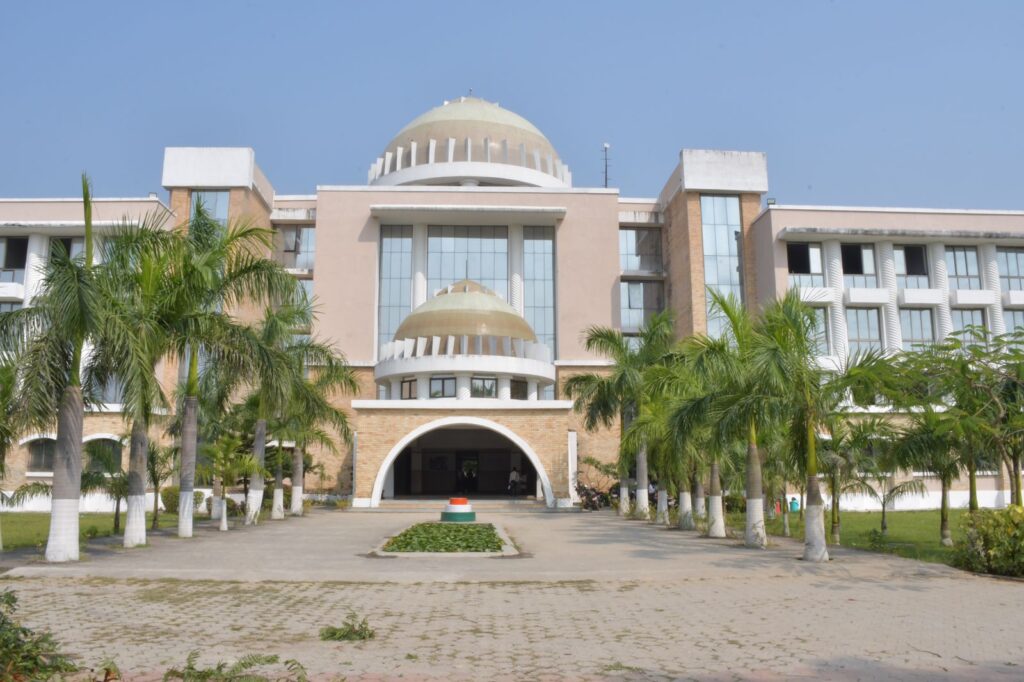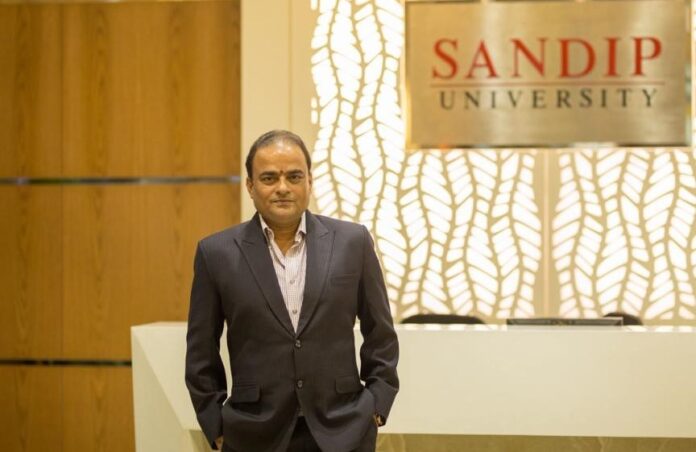Dr. Sandip Jha, Chairman and Founder of Sandip Foundation, stands out as a prominent figure in the field of education. His notable initiative in establishing the first ultra-modern private university in Madhubani demonstrates a significant dedication to advancing technical education. This university introduces innovative teaching methods, cutting-edge facilities, and a curriculum tailored to meet industry requirements in Sijoul, Madhubani.
In addition to providing a state-of-the-art learning environment, Dr. Jha is actively involved in creating opportunities for local students. Moreover, his initiatives have contributed to the overall development of the region by producing skilled professionals. Committed to inclusivity and community development, he empowers the local community and fosters socio-economic growth.
Talking to The Interview World, Dr. Jha accents how the Sandip Foundation is bolstering the technical education landscape in Bihar. He discusses efforts aimed at improving socio-economic conditions and preventing migration for job opportunities. The following are key excerpts from the interview.
Q: Can you share the inspiration behind your vision to establish the first ultra-modern private university in Madhubani, Bihar, and how you see this initiative impacting the educational landscape of the region?
A: Sandip University stands as a testament to Bihar’s long-standing tradition of fostering rich cultural and higher learning centers. Exemplified by historical institutions such as Nalanda and Takshila, Bihar’s educational history is noteworthy. While Sandip University may not be the first ultra-modern institution in the region, it draws inspiration from the past.
The establishment of Sandip University in Bihar is a proactive response to the educational requirements of the state. This endeavor is a commitment to addressing the educational needs of the community. Furthermore, it is a dedication to contribute to the local community and to create opportunities for future generations. Hence, we are continuing the enduring legacy of Bihar’s educational history.
Q: How does the Sandip Foundation ensure a balance between technical skills and the broader aspects of personal and professional development?
A: We’ve cultivated a learning environment that prioritizes bridging the gap between academic knowledge and industry expertise. Our university equips graduates with a head start in the professional world. Resource centers provide students with valuable exposure to real-world industry experiences, thereby augmenting their practical skills and knowledge.
To further enrich our teaching approach, we regularly host industry experts at our institution and organize diverse workshops. Such initiatives ensure students gain hands-on practical experience. Thus, our commitment extends beyond technical proficiency, encompassing the development of leadership, soft skills, and emotional intelligence.
In response to the demands of today’s competitive job market, we strive to empower our students with the necessary skills. This helps them achieve their professional aspirations. In addition to technical competencies, our curriculum emphasizes entrepreneurial and leadership skills. Particularly, our management-based courses empower students to create meaningful employment opportunities and contribute positively to society.
Q: How does the university actively engage with the local community, and what impact do you foresee on the socio-economic growth of Bihar?
A: Our establishment marked the initial stride in our engagement and collaboration with the local community. We acquired the 125-acre campus of Sandip University from local villagers without any objections or legal disputes. The unwavering support of the local community in my hometown, Sijoul, is remarkable.
We established Sandip University to nurture future technocrats and business leaders. Moreover, our focus is to deliver world-class education to students hailing from rural backgrounds. This approach addresses the educational needs of students who previously contemplated relocating to other states for better education. In addition to this, those students who were settling for less within Bihar now have access to quality education.
Sandip University has kickstarted socio-economic growth in Bihar. We’re optimistic about our impact. By admitting students from various economic backgrounds, including those supported by Bihar’s Student Credit Card scheme, we’ve positively influenced Bihar’s overall social and economic landscape. This aligns with our vision of offering top-notch infrastructure and maintaining world-class education standards in the state.
Q: Could you share some specific measures the foundation has taken to ensure a forward-thinking approach in the rapidly evolving field of education?
A: Sandip Foundation prioritizes future-ready measures and techniques for students’ growth. Our state-of-the-art facilities and industry-relevant curriculum ensure continuous development. We contribute to regional growth and help students achieve brighter futures.
Q: What challenges did you encounter during the journey, and how did the foundation overcome them? Additionally, what successes or milestones are you particularly proud of?
A: I dreamt of educating every child, making it my mission to eliminate illiteracy in India by establishing higher learning institutes. Despite challenges, I dedicated myself to providing quality education and creating future leaders. With my dream and experience, we founded Sandip Academy 30 years ago. Within a short time, it has expanded to 30 branches.
In 2005, I established the Sandip Foundation in Nashik, envisioning a millennium educational institution producing global scholars. The foundation covered various fields, and in 2016, it became a university in Maharashtra. The following year, we established Sandip University in Bihar’s Sijoul.
Q: Will this initiative stop the migration of students to other states to pursue technical education and how would it address the migration of students for jobs in metros?
A: After the success of our Nashik-based University, I became confident in my plan to offer quality education to students who were leaving for higher studies in other states or abroad. Today, I proudly say that Sandip University, Madhubani, is successfully preventing students from migrating for higher education.
Providing quality education in Bihar will bring about a positive change, reducing student migration to metro cities for jobs. Sandip University not only emphasizes technical skills but also nurtures entrepreneurship, leading to better job opportunities in the region.
Q7: What message or inspiration would you like to share with other regions or individuals looking to make a similar impact in the field of education?
A: Our education initiative has consistently produced positive outcomes, from Sandip University in Nashik to Sijoul. Establishing a private university in Sijoul, Madhubani, brought significant positive changes, benefiting both individuals and the community.
Our commitment to quality education, modern infrastructure, and industry relevance has impacted substantially in uplifting the local community. Education plays a vital role in regional development, serving as a powerful tool for empowerment. Furthermore, higher learning institutions empower individuals with skills and knowledge that contribute to the overall growth of the country and mankind.



